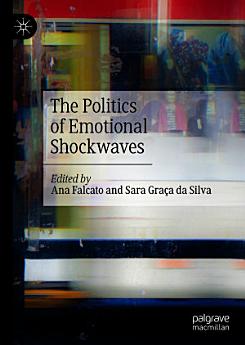The Politics of Emotional Shockwaves
អំពីសៀវភៅអេឡិចត្រូនិកនេះ
One of the distinctive aspects of social existence today is our subjection to traumatic events on a global scale, and our subsequent embodiment of the emotional responses these events provoke. Covering various methodological angles, the contributors ensure careful and heterogeneous reflection on this delicate topic. With eleven original essays, the collection spans a wide variety of fields from philosophy and literary theory, to the visual arts, history, and psychology. The authors cover diverse themes, including philosophical approaches to political polarization; the impact of negative emotions such as anger on inter-relational balance; humour and politics; media and the idea of progress; photography and trauma discourse; democratic morality in modern Indian society; emotional olfactory experiences; phenomenological readings of spatial disorientation, and the significance of moral shocks. This timely volume offers crucial perspectives on contemporary questions relating to ethical behaviours, and the challenges of a globalized society on the verge of political, financial and emotional collapse.
អំពីអ្នកនិពន្ធ
Ana Falcato, PhD, is a Research Fellow at IFILNOVA, where she explores the novelistic and critical work of J.M. Coetzee. Dr Falcato was Humboldt Research Fellow at the Johannes-Gutenberg University and the University of Oxford between 2013 and 2015. Her work has appeared in various journals including Studies in the Novel, Hypatia, and Wittgensetin-Studien. She is the author of Philosophy in the Condition of Modernism (2018) and co-editor (with Luís Aguiar e Sousa) of Phenomenological Approaches to Intersubjectivity and Values (2019).
Sara Graça da Silva, PhD, is a Research Fellow at the Institute for the Study of Literature and Tradition, NOVA/FCSH. Her research interests include the intersection between literature and science, gender, morality, emotion, and the evolutionary study of literature. She has contributed to The Victorian Literature Handbook, The Dictionary of Nineteenth Century Journalism, National Geographic, among others, and published in journals including Utopian Studies, Royal Society Open Science, and Proceedings of the National Academy of Sciences. She is the editor of Morality and Emotion (2016) and New Interdisciplinary Landscapes in Morality and Emotion (2018).






